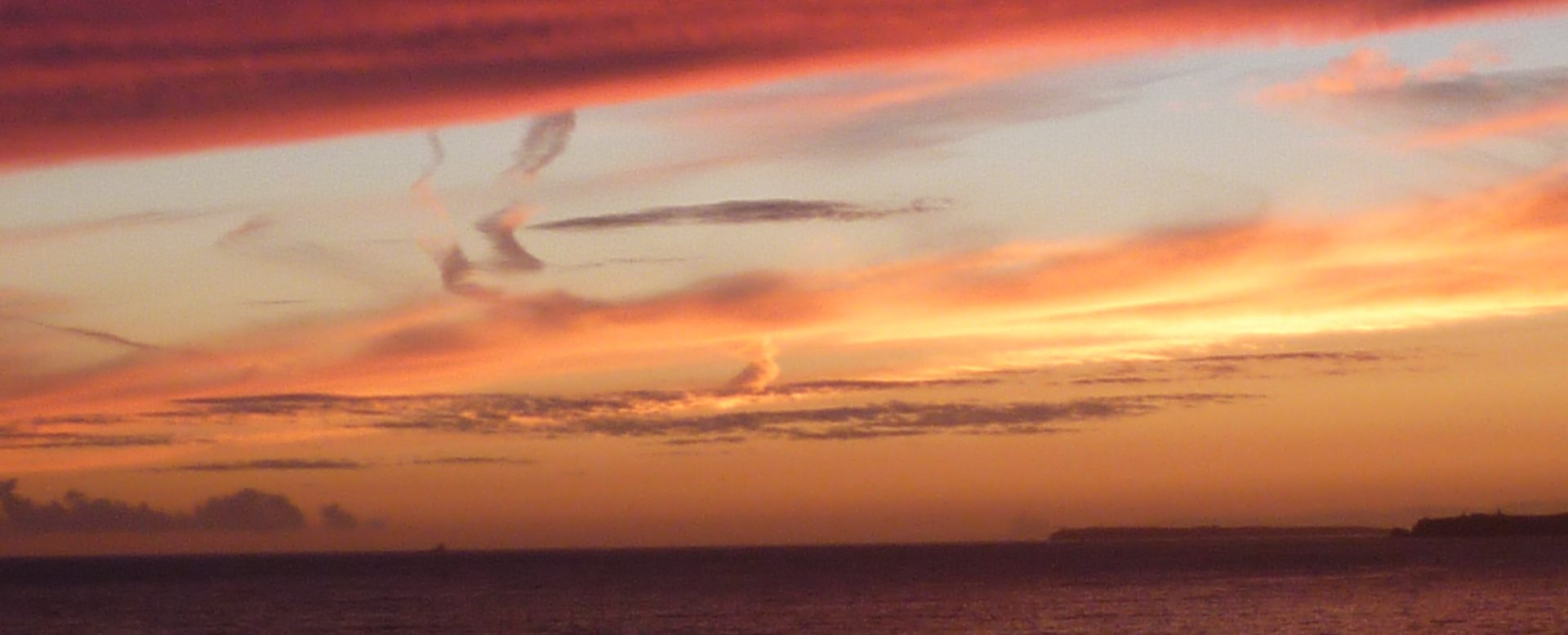Our lifestyle has always been geared towards ‘Slumping’
Not for us this growing trend towards ‘Glamping’
We’ve lived in sheds and caravans too
When hovels we’ve bought have had so much to do
We’ve lived life to the full, without luxuries
And learnt the true value of necessities
When we moved to the wild and windy west
It was the lonely spaces that we loved best
The pristine beaches that were rarely found
The coastal walks along flower strewn ground
The myriad birds that we could see
Hunting in fields that were poison free
Our village, with it’s shop, school and pub
Was then a thriving local hub
With makeshift camping for the hardy few
Who came each season to renew
Their spirits, where they could be free
To dig sandcastles by the sea
I suppose it’s selfish to regret
The passing of what’s gone, and yet
As ‘gentrification’ tidies wild spaces
While air b&b and glamping replaces
The ‘slumping’ of old that would only yield
Basic necessities in a farm’s spare field
We miss the casual laid back ways
Of well remembered golden days
When getting by on make and mend
Was the only choice; and not a trend
Recently, ‘Badger’ a regular correspondent in our much read and esteemed local paper (The Pembrokeshire Herald), described this county as ‘Pembrokeshireland Inc., Less a county and culture; more an attraction and destination’. This article, which also contains such gems as ‘In Pembrokeshireland Inc. we celebrate our oppression by the Norman French and their English successors in controlling our County’s people and resources’, and ‘Beaches, countryside and villages are all curated carefully, to meet the needs of people who do not live in Pembrokeshire’.
Having recently read some of the history of this part of the world, I can only heartily agree with him. The main industry in this part of Wales is tourism, which caters for the increasing flood of visitors; but the natives have had little choice in respect of affording to live and work in their place of birth. Instead they have to put up with low wages in menial jobs; which tend to the needs of well off tourists. As Badger states, Pembrokeshire is a ‘low income economy’ which supports an upmarket facade of prosperity, encouraged by venues advertising ‘glamping’, air b&b, mainly vacant holiday homes, gentrification of tourist traps; and monetising our ‘heritage’.
But this state of affairs is not new! Sometime around the beginning of the 1100s, large areas of the low country of Flanders were ‘inundated’ by flood, killing many Flemings and displacing many thousands more. The suffering Flemings appealed to Henry 1st, the fourth son of William the Conqueror, and King of England, to provide them with somewhere to live and the means of subsistence. As allies of William the Conqueror during the invasion of 1066, and part of the invading force, they arrived ‘in great numbers’ into England; and became a bit of a liability.
Henry 1st, in two settlements (1103 and 1113), and Henry II, in one (1155) removed ‘All the Flemings in England, which was overburdened with them, into Wales’; namely, into parts of South Pembrokeshire. Caradoc of Llancarfan, in 1135, wrote that the King ‘was very liberal of that which was not his own’.
This enforced removal accomplished two objectives. Apart from the relief of hosting the displaced Flemings in England, the influx into Wales and the gift of Welsh land, which came with the proviso that the immigrants would ‘take arms’ if and when the King required them to, meant that the Flemings were installed as something akin to a fifth column in the heart of the Welsh community, who were ‘unaccepting of their Norman invaders and troublesome to their overlords’. As allies to the English King, the Flemings were used to ‘subdue and repress the brutal audacity of the foe’. Those natives, who practised such ‘brutal audacity’, were forcibly removed to North Wales!
The second enforced settlement of Flemings into Wales was into Rhos and Penfro in Dyfed, by orders of the King, ‘As loyal men of the King’ and ‘With English among them to teach the language’. ‘And they are now English, and the plague of Dyfed and South Wales, on account of their deceit and lies’. (ref: Brut y Tywysogion, Medieval Welsh Chronicle).
This goes a long way into explaining ‘little England beyond Wales’; a phenomenon still very much apparent today; and even noticed by us (immigrants from England in 1972) when we moved to Pembrokeshire in 2004. We missed ‘the Welsh’ that is still alive and well in Carmarthenshire; which is North of the ‘Landsker line (a boundary marked by Norman castles, from Newgale in the West to Laugharne in the East)
South Pembrokeshire is always going to be a go to destination for urbanites from the rest of the UK; and, increasingly from further afield. But I can’t help feeling a selfish regret that this beautiful place, where we have chosen to end our days, has ended up being ‘tidied’, gentrified, and generally shaped towards satisfying the ‘needs’ of ‘grockles’. The locals don’t get a look in; and rarely benefit from the increased flow of tourist cash; which is mainly spent with big business (shopping deliveries and Internet purchases etc.) I know that this state of affairs is not exclusive to Pembrokeshire; and is replicated in most coastal beauty spots around the UK. But that doesn’t make the situation any easier to accept!

Very interesting post, Jackie
And that is what ‘They’ call progress.
Love you both xx
A fascinating post. What a rich history of immigration in South Wales.
Kind of makes a bit of a mockery of getting “our” country back!
Fascinated to hear about the Flemish in Wales. Well researched. Thank you.